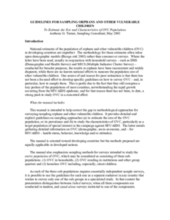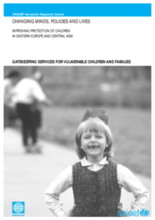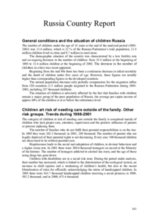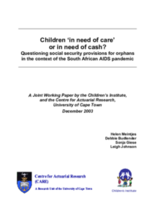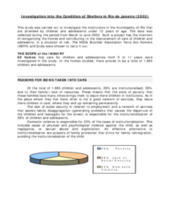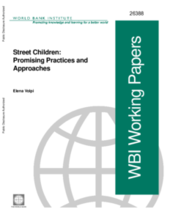Displaying 14201 - 14210 of 14551
A manual which seeks to fill the gap in the methods of estimating the population of orphans and vulnerable children in developing countries. The manual includes thorough guidelines on sampling approaches.
This paper outlines the International Save the Children Alliance’s position on residential care. It addresses the proliferation of residential care, its negative impact on children and the need for international attention. The paper presents the work of Save the Children and other agencies in order to highlight relevent issues and to provide a guide for those working with separated children.
A policy paper that presents a holistic view of child sexual abuse and exploitation examining all the situations where children are sexually abused.
Practical guidance, case examples, and tools to assess, monitor, and evaluate child protection services and facilitate reform away from institutionalization of children.
This paper provides guidelines and tools for policy makers to evaluate the quality of child care initiatives
Country report of Russia on the situation of children in residential care in anticipation of the Second International Conference on Children and Residential Care: New Strategies for a New Millennium, to be held in Stockholm 12 – 15 May 2003.
Research study of the current social security provisions for orphans in South Africa, with a comparison of four alternative cash grant scenarios. Recommends a universal income support system for all children in need.
This research study provides statistical information on institutional care of children under the age of 12 in Rio de Janeiro, Brazil. Interviews with institutions and children are conducted, and reasons for separation from family, length of time in care, status of family relationship, religious orientation and financial support of the institutions are highlighted.
This report outlines factors contributing to children living on the streets, as well as provides numerous examples of various multi-level interventions around the world. It also includes a lessons learned and improved practices section.
Outlines the Butterfly Program in India, which utilizes to an empowerment approach to working with children living and working on the streets of New Delhi. Highlights the importance of child participation and rights.

